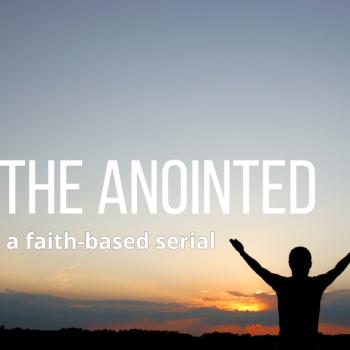Editorial Note: For the next four weeks, while in residence at Gladstone's Library in Wales, one of the world's great research centers for theology and politics, Greg Garrett will write about British religion, culture, and politics in hopes that these essays might shed fresh light on American issues.
Rowan Williams, The Most Reverend and Right Honourable the Lord Archbishop of Canterbury, has one of the best-known faces in England, and it is splashed almost life-size across the cover of the 13 June issue of New Statesman for which he served as guest editor—and in which he stirred up major controversy. The New Statesman has been published for a hundred years, and has always championed liberal values, but it isn't the Archbishop's presence in a left-of-center magazine that sparked a media flurry; it was the perceived criticism of the sitting British government, the Conservative/Liberal Democrat coalition headed by Prime Minister David Cameron, for its proposed massive cuts to health, education, and welfare in support of its Big Society initiative.
The Archbishop's remarks were condemned by some over here as being pure party politics, and these condemnations were loud and substantial: the liberal Guardian described the outcry as a "convocation of critics." The Telegraph, which splashed this controversy across its front page, also featured a commentary that found the Archbishop's criticisms "muddled and patronizing," and suggested he seemed like a politician jockeying for position. In an editorial, The Daily Mail, a popular tabloid, called the Archbishop's comments "ill-judged" and "blatantly political," accused him of arrogance, and suggested his engagement with these political issues discredited him.
The Prime Minister himself shot back at the Archbishop at a later news conference, saying, "The Archbishop of Canterbury is entirely free to express political views," but "I profoundly disagree with many of the views that he has expressed." All in all, media watchers concluded it was the strongest and most partisan attack by the Archbishop of Canterbury on a sitting government in decades.
I myself disagree, at least in terms of the commentary being a partisan attack on the government. A few sound bites aside—and it is always dangerous to try and sound-bite Rowan Williams, a writer and speaker who constructs beautiful and intricate arguments—the Archbishop's commentary seemed to me, as to The Guardian, instead to be inviting people to dialogue about the future of British democracy and about the building of sustainable communities where individuals care about more than simply themselves. It also seemed to challenge both the Government and the Opposition as it called for "a democracy capable of real argument about shared needs and hopes and real generosity." But such a measured and thoughtful invitation to the table, although it is typical of Williams both as theologian and as Archbishop, doesn't sell papers or attract listeners; as even a producer at the magisterial BBC said to me about the selling of the New Statesman commentary as a story, "We do have to have news."
Americans might have trouble comprehending why Rowan Williams' words have caused such a media and political uproar. In the States, religious figures regularly criticize legislation, court decisions, and government leaders. Conservative preachers and priests castigate the Obama government for failing to defend the Defense of Marriage act; progressive religious leaders condemn the Obama administration for failing to close Guantanamo Bay. This criticism is not unexpected, and often, unlike Prime Minister Cameron's high-profile response, it goes unremarked. All Americans consider that they have the right and privilege to comment on their government, and the only restriction we place on political dialogue from American religious leaders is that attempts to influence voters from the pulpit may jeopardize a church's tax-exempt status.





